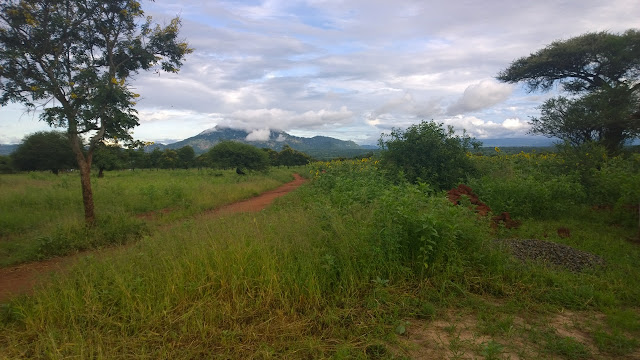Benjamin's Story
 |
| A Taste of Nepal in the Streets of KL - July 2010 |
The following is an excerpt from a paper I'll be sharing at the International Association for Mission Studies gathering in Toronto from Aug 15-20, 2012. The theme of the event is "Migration, Human Dislocation, and the Good News: Margins as the Center in Christian Mission."
I was walking with 'Benjamin' through the streets of central
Kuala Lumpur. A young man from Nepal, Benjamin was in Malaysia as a short-term
migrant worker at a restaurant and bar in the neighboring suburb of Petaling
Jaya. As we paused at a corner, he put his hand on my shoulder and smiled.
“Brother . . . ” he said, “Brother, before I was a Christian I had only one
family in one valley in Nepal. Now, however, I have family everywhere. I have
more brothers in Nepal, brothers and sisters in Malaysia, and now – in you – in
America and all around the world.” As we stood on that street corner, his words
hung poignantly in the air, mixing with the scent of joss sticks and incense
rising from shrines outside of Chinese shop lots and the Hindu temple around
the corner.
Before coming to Malaysia, Benjamin has said that he did not
know anything about Christianity or the church.
After six months in Malaysia, another Nepali worker, a Christian named Raj,
came to visit Benjamin in the cramped living conditions of the worker hostel in
which he was staying. Raj’s witness upset Benjamin. “I was so angry and I
scolded him,” Benjamin recalls,
I told him that the Christian
religion is not for me and I don't want to sell my life to his religion. I
requested that he share about Hinduism because we are Hindus and our religion
is better than Christianity. I told him so many things but he just simply
listened to me without getting angry. I always used to scold him but he didn't
stop coming to our room.
The persistence and presence of this friend had their
desired effect. Over time, Benjamin agreed to follow Raj to a Nepalese program
at a local church. He went to sing songs because he liked music, but what he
found was “great love from the brothers and sisters of the church.” Every Sunday he began to go back for English
and computer classes, refreshments, and fellowship with other migrant workers.
“For the next few weeks,” he writes, “I kept thinking about the love which I
experienced. Oh what kind of love is this? Even my own relatives never showed
such love to me. I was wondering why they loved me like my mother.” In time, Benjamin “found that they loved us
(workers) so much because they had the love of Jesus in their life so I decided
later to follow Jesus Christ.”
On November 19, 2006 Benjamin – a migrant worker from the
foothills of the Himalayas– was baptized and became a member of the worldwide
Christian family in a predominantly Chinese congregation on the urban fringe of
this Malay mega-city. In that conversion process, Benjamin underwent a
transformation that was simultaneously global and local, expansively communal
and yet intensely personal. In that
conversion experience, he is not alone. Through the concerted efforts of
congregations and organizations on the Malay peninsula, migrant workers from
across Asia are being introduced, perhaps unexpectedly, to the Christian faith
in the context of a mostly Muslim country.
This paper offers a cursory look at the experience of
migrant workers like Benjamin. Living, working, and moving between countries
and cultures, this study reveals short-term migrant workers to be not just
receptacles but carriers of the gospel and agents of change in a transnational
web of relationships and identities that connects disparate parts of the globe.
For practitioners of mission, it is hoped that this paper will underscore the
significance of migrant ministries undertaken in settings with a significant
concentration of migrant laborers, such as Malaysia. For scholars it is hoped
that it will begin to illumine further areas for research, namely the
experience of short-term migrants such as those in the Nepali Diaspora and the
linkages that they are forming across Asia. The paper begins by examining Kuala
Lumpur as a center for both human migration and Christian mission, continues by
discussing the ways in which a ‘glocalized’ transnational identity rooted in
the Imago Dei is understood and
articulated by migrant workers, and concludes by following migrant workers
turned missionaries back to Nepal and on to other destinations in the region.
Want to read more? The complete text of the paper can be found here.


Comments